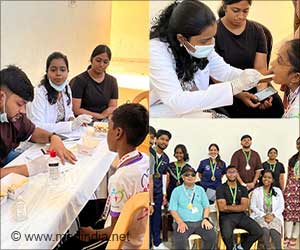Caregivers of deceased lung transplant patients are four to five times more likely than normal people to suffer from symptoms of depression and post-traumatic stress disorder (PTSD), researchers at the University of Washington have found.
The findings are based on a study, in which caregivers of all lung transplant recipients who had died within the last five years were assessed using three validated questionnaires that measured their burden of depression, their level of PTSD symptoms and the quality of their loved ones' last days."We found that caregivers reported that their loved one's symptoms were poorly controlled and that the quality of the dying and death process was worse than that of other populations," said Cynthia Gries, M.D., M,Sc., of the Division of Pulmonary and Critical Care Medicine at the University of Washington School of Medicine in Seattle.
"In addition, family members who perceived that their loved one had either a lower quality of dying and death or poorly controlled pain symptoms, were more likely to have symptoms consistent with PTSD," she added.
This is the first study to assess the caregivers' experience with end-of-life care in lung transplant patients, and to evaluate the psychological effects it has on those family members who survive.
"Most people don't realize that prior to wait-listing a patient as a lung transplant candidate, a caregiver plan must exist to support the patient through the entire process," Gries said.
That process can be lengthy and grueling for the caregiver as well as the patient, resulting in much higher rates of depression and PTSD symptoms.
Advertisement
"This suggests that there is a significant burden of psychological symptoms in family members which has previously been unrecognized," she added.
Advertisement
According to Dr. Gries, having trained counselors to help family members with emotional needs, as well as financial issues, could reduce the stress on caregivers.
"We hope that our findings will increase awareness among clinicians that caregivers experience a significant burden of symptoms and may need additional support," she said.
The study was presented at the American Thoracic Society's 2008 International Conference in Toronto on, May 19.
Source-ANI
RAS/L











